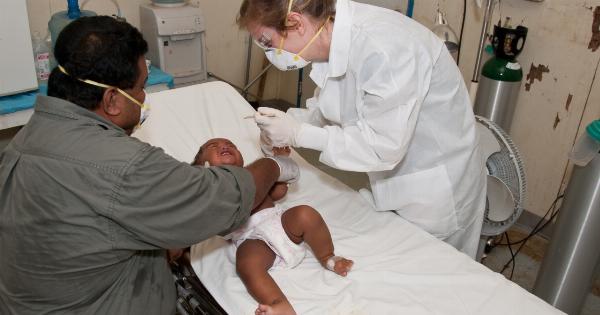Alexander’s Baby is a rare and complex genetic disorder that affects infants. It is a progressive and debilitating condition that can have severe effects on the child’s development and overall well-being.
In this article, we will explore the symptoms, complications, causes, and treatment options for Alexander’s Baby.
Symptoms
Children with Alexander’s Baby often exhibit a wide range of neurological symptoms. These symptoms usually start to manifest during infancy and progressively worsen over time. Some common symptoms may include:.
- Delayed motor development
- Weakness or paralysis
- Problems with coordination and balance
- Seizures
- Difficulties with swallowing and breathing
- Muscle stiffness or spasticity
- Developmental regression
It is important to note that the severity and combination of symptoms can vary greatly among individuals with Alexander’s Baby.
Complications
As Alexander’s Baby progresses, it can lead to various complications that further impact the child’s health and quality of life. These complications may include:.
- Respiratory problems: Due to weakened respiratory muscles, children with Alexander’s Baby may experience difficulties with breathing and may require assistance.
- Feeding difficulties: Weakness in the muscles responsible for swallowing can make it challenging for infants to feed properly, leading to malnutrition and growth issues.
- Communication difficulties: As the condition affects the central nervous system, it can also impact speech and language development.
- Orthopedic issues: Muscular dysfunction can result in contractures, scoliosis, and other skeletal abnormalities.
- Cognitive and developmental delays: The neurological impact of the disorder can cause significant delays in cognitive and motor skills development.
Causes
Alexander’s Baby is caused by mutations in the GFAP gene, which provides instructions for making a protein called glial fibrillary acidic protein.
This protein is essential for the normal function and support of cells called astrocytes, which are crucial for maintaining the structure and function of the central nervous system.
When the GFAP gene mutations occur, the production of glial fibrillary acidic protein is disrupted, leading to abnormal astrocyte function.
These abnormal astrocytes fail to provide the necessary support and nourishment to neurons, resulting in the neurological symptoms observed in Alexander’s Baby.
Treatment
Currently, there is no cure for Alexander’s Baby, and treatment primarily focuses on managing the symptoms and complications associated with the disorder. The aim is to optimize the child’s quality of life and provide supportive care.
The treatment options may include:.
- Physical therapy: This can help improve muscle strength, mobility, and overall motor skills.
- Occupational therapy: It focuses on enhancing the child’s ability to perform daily activities independently, such as feeding, dressing, and grooming.
- Speech and language therapy: This is crucial for addressing communication difficulties and improving speech and language development.
- Respiratory support: Depending on the severity of respiratory involvement, some children may require assistance with breathing through devices like ventilators.
- Nutritional support: A specialized diet may be recommended to address feeding difficulties and ensure proper nutrition.
- Medications: Certain medications may be prescribed to manage specific symptoms like seizures or muscle stiffness.
- Regular monitoring: Routine medical check-ups and evaluations are necessary to monitor the progression of the disease and identify any new complications as early as possible.
Conclusion
Alexander’s Baby is a rare and debilitating genetic disorder that affects infants, causing a range of neurological symptoms and complications.
Although there is currently no cure, early detection and intervention, along with supportive care, can significantly improve the child’s quality of life and overall outcomes. By understanding the symptoms, complications, causes, and available treatment options, parents and healthcare professionals can work together to provide the best possible care for children with Alexander’s Baby.





























